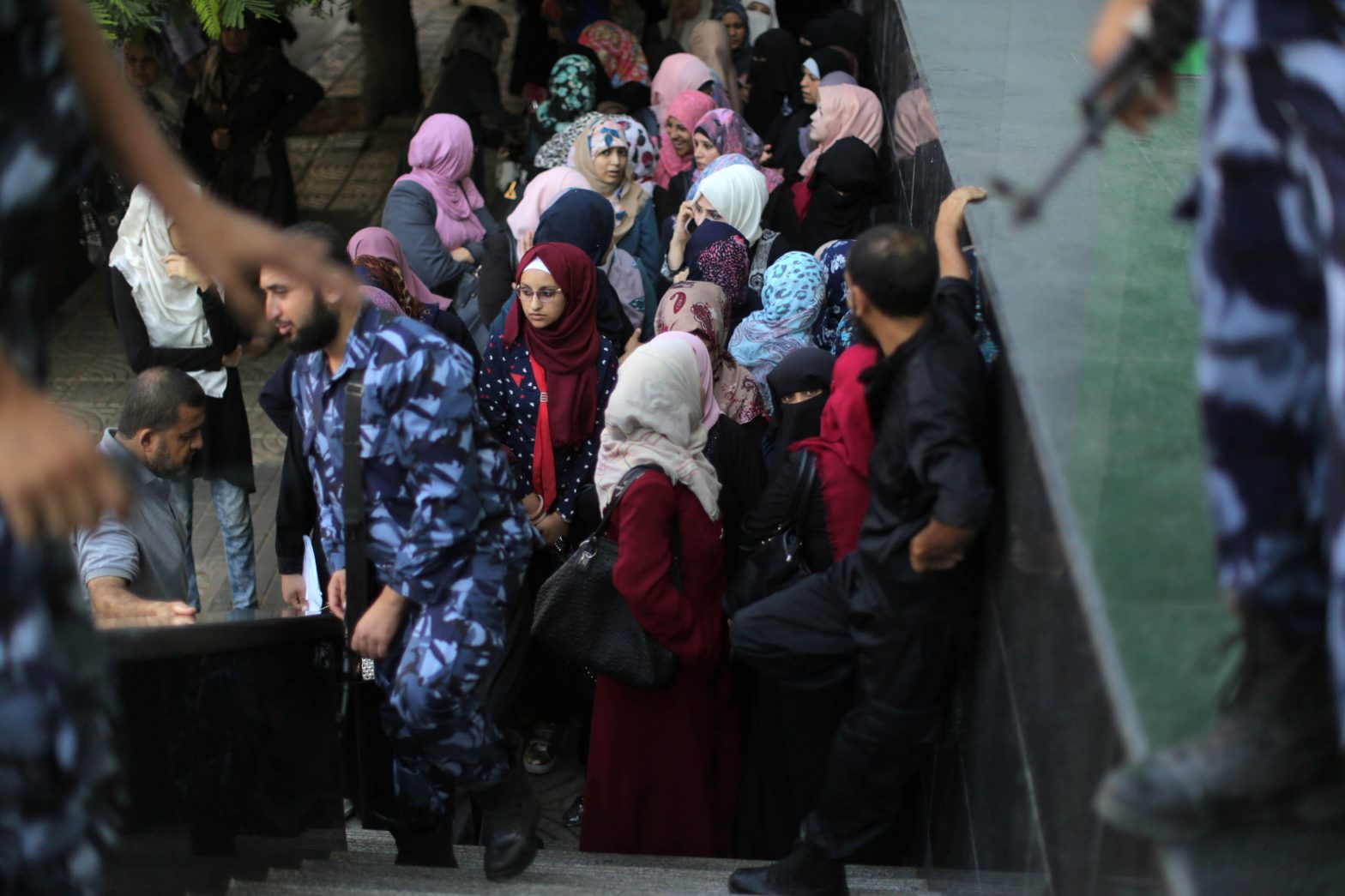People of Iran took to the streets earlier this month to participate in demonstrations marking Jerusalem Day. Falling on the last Friday of the holy month of Ramadan, it is an occasion when Muslims are invited to show solidarity with the Palestinian people in their fight against Israeli occupation.
Although the Iranian government invests heavily on propaganda for the annual occasion, and while the country’s state-run media give extensive coverage to rallies on this day, not all Iranians agree the issue of Palestine should be a priority for the Islamic Republic at a time their country is bearing the brunt of grueling economic sanctions by the United States.
Masoumeh Sharifi, a 60-year-old mother of three and retired lab technician in the northern city of Rasht, told Asia Times that Iran was a rich and resourceful country but suffering due to mismanagement and misplaced priorities.
“There is really no need to donate to Syria, Lebanon and Palestine. This has stripped people of their trust and beliefs. Our own country is full of people who are struggling to make ends meet. The officials should take care of them. Did the same countries help us when we needed help?” she demanded.
“As a result of the sanctions, we cannot afford anything other than to supply something to eat. We are a resourceful country, but there are few in power who care about the people’s pain,” she added.
Hasti Ebrahimi, a 31-year-old teacher, told Asia Times that his income has remained stagnant, while the prices of consumer goods keep rising.
“I’ve had to avoid a lot of items I used to buy regularly and also forget about the entertainment and activities that used to enrich my life during my time off,” he said.
Ebrahimi says that he loves to travel, but that fluctuations in exchange rates, and namely the sharp rise in the dollar, has put this pleasure out of reach.
“With the current situation in mind, donating to other countries is a betrayal of the Iranian people,” the teacher said.
Young Iranians are also skeptical about the future and do not see a vision for progress and improvement in an isolated society punished with stringent economic sanctions.
“I think there’s no future left for us. Prices spike overnight and there’s no supervision over the market. The rich people are getting richer every day and the social gaps are widening exponentially,” said Mahsa Kazemi, a 22-year-old photographer in Tehran.
“In my view, those who contribute money to countries such as Syria and Palestine under such tight economic circumstances are idiots,” she added.
An expensive cause
Since the Islamic Revolution in 1979, advocacy for the Palestinian cause has been a pillar of Iran’s foreign policy. Islamic Republic officials say that as a Muslim nation, it is Iran’s responsibility to liberate Palestine and assist the Palestinian people in their struggle against Israel.
Jerusalem based Al-Quds newspaper reported in March that Iran pays $15 million to Hamas each year, citing “informed” Palestinian sources. Israeli sources have put the figure far higher, with Ynet News reporting that Iran transfers $70 million to Hamas and $30 million to Palestinian Islamic Jihad every year. Palestinian Islamic Jihad, the other main militant faction in the Gaza Strip, is looking for more financial support from Tehran, as Asia Times has reported, after years of faltering governance by Hamas.
The President of Palestinian Authority Mahmoud Abbas once said that Iran is the main source of income for Hamas: “Hamas is funded by Iran. It claims it is financed by donations, but the donations are nothing like what it receives from Iran.” Abbas asserted that Hamas received $250 million from Iran in 2009 as a reward for refusing an Egyptian-brokered peace agreement with the Palestinian Authority.

The Islamic Republic’s ideology-driven foreign policy does not merely prioritize advocacy for the Palestinian cause. Iran supports militant groups in Lebanon, Iraq, Syria and Yemen in order to counter the influence of the US and its allies in those countries.
Although the figure is not confirmed by Iran, the US Treasury under-secretary for terrorism and financial intelligence Sigal Mandelker asserts that Iran donates $700 million a year to the Lebanese militant group Hezbollah, considered a terrorist organization by the United States.
Billions to prop up Assad
The Islamic Republic has also spent lavishly in Syria in an attempt to sustain the government of the embattled President Bashar al-Assad since civil war broke out in 2011. This is in addition to the military support Iran has been offering to the Syrian government. The former UN special envoy for Syria, Staffan de Mistura, reportedly revealed in 2015 that Iran had been spending $6 billion yearly to prop up the Assad government.
In the early aftermath of the 1979 revolution, the government in Tehran was able to build a national consensus over the cause of Palestine and resistance against Israel and the United States. In recent years, however, younger Iranians started to challenge this state-sanctioned narrative.
During Iran’s 2009 post-election demonstrations, which turned into a platform for a great number of Iranians to voice their frustration over government policies, a new protest chant emerged among the youth: ‘Neither Gaza, nor Lebanon; I give my life for Iran.’
Via Asia Times






